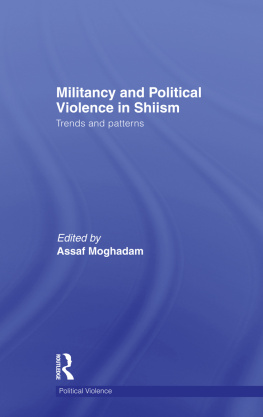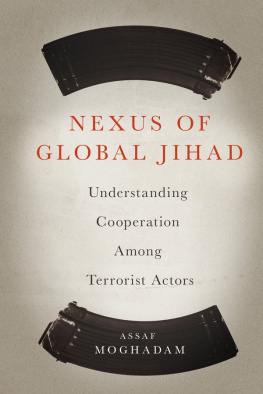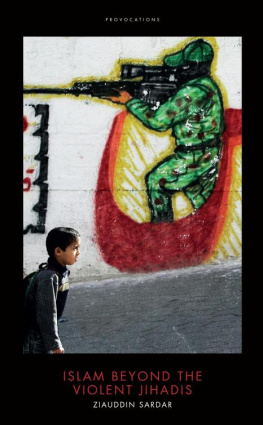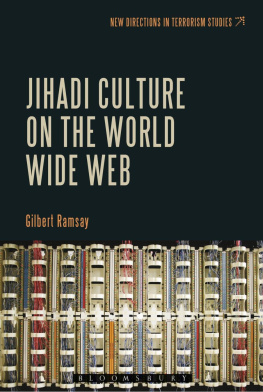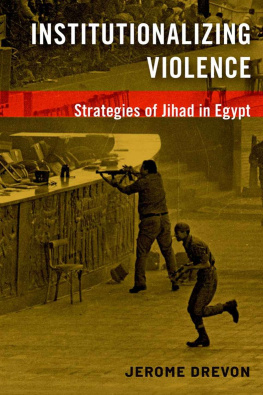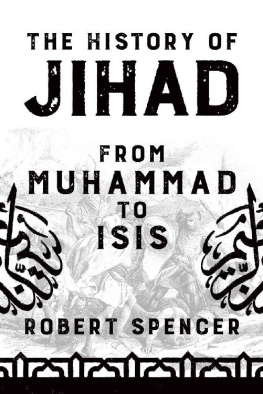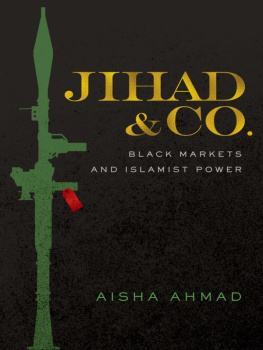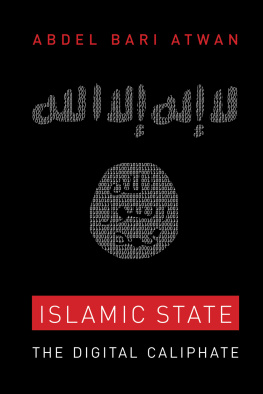Fault Lines in Global Jihad
This book deals with the causes, nature, and impact of the divisions within the jihadi movement, and the splits between jihadis and other Islamic groups.
Fault Lines in Global Jihad offers a systematic and comprehensive examination of the broad range of divisions that contribute to the weakening of the jihadi movement. It separates these divisions into two broad categories, namely fissures dividing jihadis themselves, and divisions separating jihadis from other Muslim and Islamist groups. The first part of the book covers intra-jihadi divisions, highlighting tensions and divisions over strategic, tactical, and organizational issues. The second part of the book addresses several important case studies of jihadi altercations with other Muslim and Islamist groups of non-jihadi persuasion, such as the Muslim Brotherhood, Hamas, and the Shia community. More than simply an enumeration of problems and cracks within al-Qaida and its cohorts, this book addresses critical policy issues of relevance to the broader struggle against the global jihadi movement. The editors conclude that these divisions have weakened and continue to weaken al-Qaida, but neither in an automatic nor in an exclusive fashion, for these divisions render the global jihadi movement simultaneously vulnerable and more resilient.
This book will be of much interest to students of jihadism, terrorism and political violence, Islamism, security studies, and IR in general.
Assaf Moghadam is Director of Terrorism Studies and Assistant Professor at the Combating Terrorism Center, US Military Academy, West Point.
Brian Fishman is Counterterrorism Research Fellow at the New America Foundation, an Adjunct Professor at the School of Foreign Service at Georgetown University and a Fellow at the Combating Terrorism Center at West Point, where he served previously as the Director of Research.
Political Violence
Series Editors: Paul Wilkinson and David Rapoport
This book series contains sober, thoughtful and authoritative academic accounts of terrorism and political violence. Its aim is to produce a useful taxonomy of terror and violence through comparative and historical analysis in both national and international spheres. Each book discusses origins, organisational dynamics and outcomes of particular forms and expressions of political violence.
Aviation Terrorism and Security
Edited by Paul Wilkinson and Brian M. Jenkins
Counter-Terrorist Law and Emergency Powers in the United Kingdom, 19222000
Laura K. Donohue
The Democratic Experience and Political Violence
Edited by David C. Rapoport and Leonard Weinberg
Inside Terrorist Organizations
Edited by David C. Rapoport
The Future of Terrorism
Edited by Max Taylor and John Horgan
The IRA, 19682000
Analysis of a secret army
J. Bowyer Bell
Millennial Violence
Past, present and future
Edited by Jeffrey Kaplan
Right-Wing Extremism in the Twenty-First Century
Edited by Peter H. Merkl and Leonard Weinberg
Terrorism Today
Christopher C. Harmon
The Psychology of Terrorism
John Horgan
Research on Terrorism
Trends, achievements and failures
Edited by Andrew Silke
A War of Words
Political violence and public debate in Israel
Gerald Cromer
Root Causes of Suicide Terrorism
The globalization of martyrdom
Edited by Ami Pedahzur
Terrorism versus Democracy
The liberal state response, second edition
Paul Wilkinson
Countering Terrorism and WMD
Creating a global counter-terrorism network
Edited by Peter Katona, Michael D. Intriligator and John P. Sullivan
Mapping Terrorism Research
State of the art, gaps and future direction
Edited by Magnus Ranstorp
The Ideological War on Terror
Worldwide strategies for counter-terrorism
Edited by Anne Aldis and Graeme P. Herd
The IRA and Armed Struggle
Rogelio Alonso
Homeland Security in the UK
Future preparedness for terrorist attack since 9/11
Edited by Paul Wilkinson
Terrorism Today, Second Edition
Christopher C. Harmon
Understanding Terrorism and Political Violence
The life cycle of birth, growth, transformation, and demise
Dipak K. Gupta
Global Jihadism
Theory and practice
Jarret M. Brachman
Combating Terrorism in Northern Ireland
Edited by James Dingley
Leaving Terrorism Behind
Individual and collective disengagement
Edited by Tore Bjrgo and John Horgan
Unconventional Weapons and International Terrorism
Challenges and new approaches
Edited by Magnus Ranstorp and Magnus Normark
International Aviation and Terrorism
Evolving threats, evolving security
John Harrison
Walking Away from Terrorism
Accounts of disengagement from radical and extremist movements
John Horgan
Understanding Violent Radicalisation
Terrorist and jihadist movements in Europe
Edited by Magnus Ranstorp
Terrorist Groups and the New Tribalism
Terrorisms fifth wave
Jeffrey Kaplan
Negotiating with Terrorists
Strategy, tactics, and politics
Edited by Guy Olivier Faure and I. William Zartman
Explaining Terrorism
Causes, processes and consequences
Martha Crenshaw
The Psychology of Counter-Terrorism
Edited by Andrew Silke
Terrorism and the Olympics
Major event security and lessons for the future
Edited by Anthony Richards, Peter Fussey and Andrew Silke
Irish Republican Terrorism and Politics
A comparative study of the official and the provisional IRA
Kacper Rekawek
Fault Lines in Global Jihad
Organizational, strategic, and ideological fissures
Edited by Assaf Moghadam and Brian Fishman
First published 2011
by Routledge
2 Park Square, Milton Park, Abingdon, Oxon, OX14 4RN
Simultaneously published in the USA and Canada
by Routledge
711 Third Avenue, New York, NY 10017
Routledge is an imprint of the Taylor & Francis Group, an informa business
2011 Assaf Moghadam and Brian Fishman for selection and editorial matter, individual contributors; their contributions
The right of the editors to be identified as the authors of the editorial material, and of the authors for their individual chapters, has been asserted in accordance with sections 77 and 78 of the Copyright, Designs and Patents Act 1988.
All rights reserved. No part of this book may be reprinted or reproduced or utilized in any form or by any electronic, mechanical, or other means, now known or hereafter invented, including photocopying and recording, or in any information storage or retrieval system, without permission in writing from the publishers.
Trademark notice: Product or corporate names may be trademarks or registered trademarks, and are used only for identification and explanation without intent to infringe.


